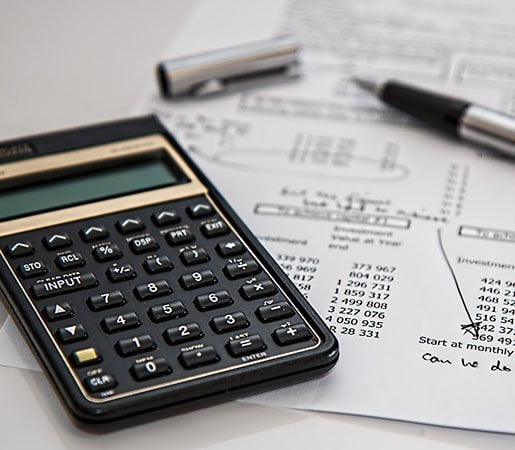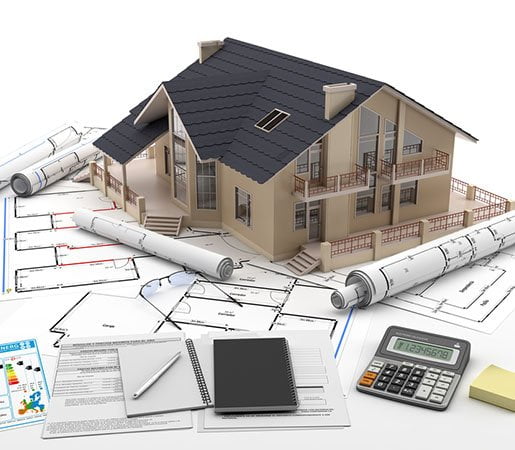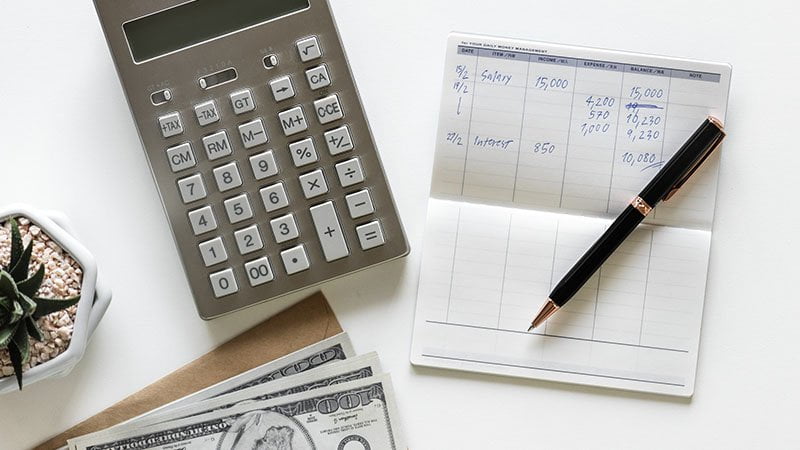Taxes and Duties in Spain
Taxes and Duties in Spain – A guide for expats
In Spain, as in any other country, you are obliged to pay some taxes to the government in order to be recognised as a part of the society. Different taxes have different purposes that is why the list of taxes for everyone is unique, depending on the personal situation.
Here we will focus on the taxes that you have to pay as a (future) owner of any immovable property in Spain:
- Individual income tax*
- Wealth tax*
- Property tax
- Non-resident income tax
- Non-resident wealth tax
- Tax on the increase in value of the land
- Capital gains tax
- Transfer tax
- Sales tax
- Construction tax
*The individual income tax and wealth tax depend entirely on your assets and any income registered in Spain.


Non-residents
Non-residents in Spain have an obligation to appoint a tax representative. This can be a private person or a company specialised in taxation. It costs about 150 Euro for a standard tax declaration. This person/company will be dealing with all your tax related correspondence, payments and will answer any questions concerning your property in Spain. This way you don’t have to worry about deadlines, forms and other tax matters. You can just enjoy your new home in Spain.
Resident individual income tax: (Impuesto sobre la renta de las personas físicas, IRPF)
Every foreigner who has a status of a resident in Spain must file a tax return regarding his personal obligations and worldwide income. If you stay in Spain for more than 6 months per year, you will be considered a Spanish tax resident even if you didn’t applied for a residence permit yet.
However, there are certain types of income (e.g. disability pensions) that are exempt from income tax in Spain. Moreover there are several tax treaties between a number of countries and Spain, which determine the country where a specific tax should be paid.
In Spain the income tax is progressive, ranging from 24 to 43%. As a Spanish resident, you can deduct mortgage costs (interest and repayment) from your taxable income up to a certain amount. Income below 7,993 Euro is exempt from income tax and under certain conditions you are also exempt if you have an income of less than 22,000 Euro. As a Spanish resident, you don’t have to pay a fixed rental value.
Wealth tax: (Impuesto extraordinario sobre el patrimonio)
If you are a Spanish resident, wealth tax applies to your worldwide assets, after the relevant tex-free allowances. In case you are a non-resident in Spain it will be calculated only for your Spanish assets. Each individual, resident or non-resident, has a personal tax-free allowance of 700,000 Euro.
Property tax: (Impuesto sobre bienes inmeubles)
The owner of any property pays between 0.3% and 0.8% of the real estate tax. The rates differ per municipality. It is an obligation to pay the property tax, even if you are not registered in Spain.


Non-resident income tax (for those who don’t have a Spanish residence permit)
It applies to the individuals who generate income in the Spanish territory, but operate outside it, meaning non-resident income tax is paid for the income of those individuals who don’t reside on the territory of Spain. It is important to know that a person who lives less than 183 days per year is considered a non-resident.
Land appreciation tax: (Plusvalia)
It is based on the increase of the value of the land from the date the owner acquired the property to the time of the present sale. So when selling any property, you will have to pay this tax regardless of how long you owned it. The rate of taxation is determined by each local authority and depends on the area where the property is located.
Building tax: (impuesto sobre construcciones, instalaciones y obras)
Spanish municipalities levy this tax on every construction work for which it is necessary to obtain a building permit. The base rate is 2% from the actual construction cost. It is also obligatory to pay another tax upon delivery of new construction. At this point a notarial deed is signed and the property is officially registered in the land register. This tax is 0.5% of the property’s cadastral value.


Local taxes: (Tasas Locales)
Every Spanish municipality has its own tax rates concerning the activities such as the collection of household waste, the sewage system, etc. They can also request a contribution for other services that have been requested by citizens. For example, for collecting bulky waste, arranging parking restrictions and cleaning private roads. Municipalities can also impose additional taxes on the appreciation of real estate by improving the infrastructure. It is important to get the right information about all the local taxes in your city hall.
Capital Gains Tax: (Impuesto sobre incremento de patrimonio de la venta de un bien inmueble)
The capital gains tax is the percentage one needs to pay on the benefit obtained once someone sells a property in Spain. Meaning that, when there is a difference between the price of the property at the time of purchase and its sales price, that very difference will have to be taxed. The percentage you will have to pay completely depends on the residential status of the seller. If you are a Spanish resident the tax rate will be from 19% to 23%. In case you are a non-resident on Spain but live in EU, the tax rate will be 19%, however if you are a citizen of a non-EU country and you are a non-resident on Spain, you will have to pay 24%. Of course there are some exemptions which you have to bear in mind.
Residents and non-residents transferring property acquired in or before 1994 may qualify for capital gains reduction.

Property transfer tax: (Impuesto de Transmisiones Patrimoniales)
The property transfer tax is a tax that depends on the price of the property itself. In general, if you purchase from a private individual, meaning a second-hand property, you pay for the transfer a fixed tax of 7% of ITP on the official price is charged. However, if you buy a brand new property from a project developer, the tax to be paid is 10% VAT or ‘IVA’ in Spanish.
Sales tax – VAT (IVA)
This is an indirect tax applying for consumption and transaction activities. VAT tax rate is equal within the whole Spanish territory. If you buy a second-hand property from a private individual, the tax rate is 7% of IPT (Impuesto sobre Transmisiones Patrimoniales). If you buy a new-build property from a project developer (house & land) you pay 10% VAT. If you buy only a land from a project developer you pay 21% VAT. It also means that if you buy the land first and then you will build a house on it, you still have to pay 21% VAT for a piece of land and 10% VAT for the new building on it (even if this new building will be built by the same project developer). If you have a garage built next to the new building at the same time, you also pay 10% VAT.
However if you have a swimming pool or a garage built at the house that already exist, you pay 21% VAT.
For detached renovations which do not exceed 25% of the cadastral value of the property, you will have to pay 21% VAT, for larger renovations – 10% VAT.
If the property is purchased for an individual use, meaning as a house the buyer wants to live in, the buyer will not be considered as an VAT-entrepreneur and therefore he will not be able to reclaim the VAT paid for the purchase from the tax authorities. However, if the property has been purchased for the rental purposes, it has to be recognised in one of the official rental mediation organisations and the buyer will in principle be qualified as a VAT-entrepreneur. In that case, he must be registered at the Spanish tax authorities in order to obtain a VAT-number. Only in this case the buyer will be able to reclaim the VAT back from the Spanish tax authorities.
It is important to know that the taxation of the purchase or selling a property in Spain is always very individual and based on the specific tax position of a buyer.
Marbella way of living
Gastronomy | Sport | Healthcare | Pets | Family Activities | Finance | Going Out





